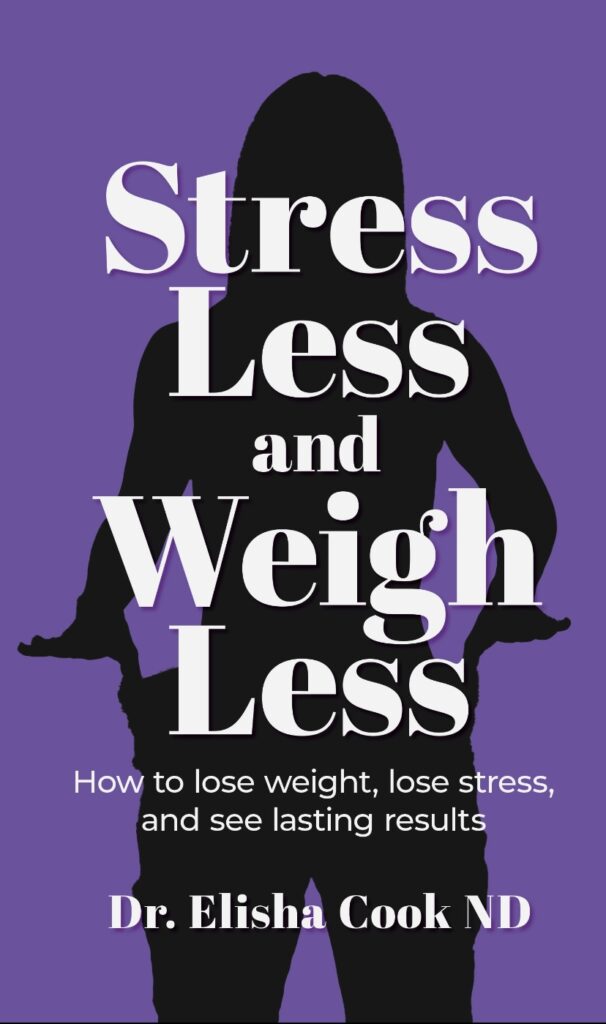
We are so excited to announce that Dr. Elisha Cook ND’s new book Stress Less and Weigh Less has officially been published, and has already made it to the Best Seller list on Amazon in several categories! Dr. Cook has compiled much of her clinical experience and research into the writing of this book. It includes practical guidance and a wealth of knowledge on the impact of stress on the weight loss journey. In particular, the struggle that chronically stressed individuals can face when it comes to weight loss.
In this book, you will learn
- What stress is and determine if you are stressed
- What weight loss approaches work based on research
- What forms of exercise and dietary patterns help you lose weight when you are chronically stressed
- Realistic coping techniques for stress
- How to overcome common weight loss strategy pitfalls
To make sure we can get this book into as many hands as we can, reduced pricing will be in effect until June 26, 2023! It can be bought on amazon for $9.99 as the paperback and $0.99 as the kindle version until June 26, 2023. After this date the price will go up.
If you are interested in getting your hands on a paperback version or a kindle version of the book, see following link: https://www.amazon.ca/dp/B0C87VD1FD . We will have copies available at the clinic, and will make updates on social media when they are available.
In addition, if you subscribe to our blog, you will automatically be sent a PDF of the workbook to go with the book Stress Less and Weigh Less.
For a complete book description, please see below:
We live in a society of pressing deadlines, overwhelming schedules, and increasing demands. On top of keeping up with this lifestyle, we expect ourselves to have the body and physique of an athlete. It may be surprising for some, but chronically stressed individuals often have a very difficult time losing weight and keeping the weight off. There is a way to stress less and weigh less. You do not have to struggle to lose weight anymore.
In the book, we examine if you are truly stressed and what it actually looks like in all its facets. Once we know what stress really is, we can then begin to examine its impact on weight, and how it can contribute to weight gain. Dr. Elisha Cook ND discusses three key focus areas: exercise, diet, and stress management. With each section, we examine the strategies that increase stress and those that decrease stress on the body. When you manage your stress confidently and prioritize yourself, you can lose weight and keep it off.
In this book, you will learn:
- What stress is and determine if you are stressed
- What weight loss approaches work based on research
- What forms of exercise and dietary patterns help you lose weight when you are chronically stressed
- Realistic coping techniques for stress
- How to overcome common weight loss strategy pitfalls
With the constant stress surrounding our daily lives, we need to be able to keep ourselves healthy and manage our stress. In this book, Dr. Elisha Cook ND hopes that she can help people identify sources of stress in their life, how it may be halting their weight loss journey, and how to overcome it. To find out more about her methods, grab this book today!
Want more information about our clinic or services?
Have you benefited from reading this blog? Know someone that would benefit as well? Share, Like, Comment, or Tweet this article, and let me know what you think.
Some of the information provided above may not be appropriate for everyone, please consult with your doctor before trying any of the above. If you are interested in trying any of our services, working with any of our amazing practitioners, or are simply wanting a different approach to your health care needs, contact the Plattsville Natural Health Clinic by calling 226-232-7665 and book your appointment today!



